Speech by President Emomali Rahmon at the High-level Debates “Implementation of Climate Actions”
Read also
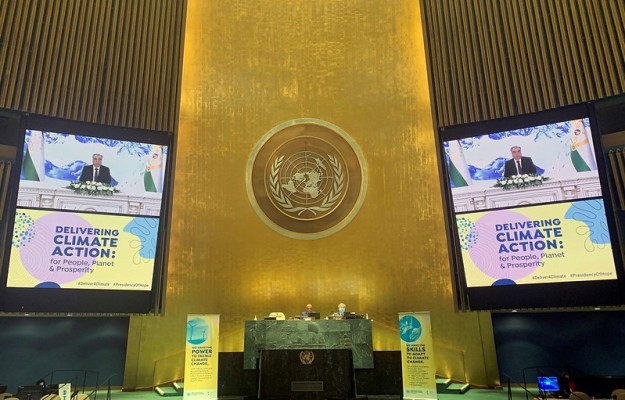
27.10.2021, Dushanbe city
Excellency Mr. Chairman,
Ladies and gentlemen,
Tajikistan with 93 percent of its territory covered by mountains and with complex geographic location, is one of the most vulnerable countries in the world to climate change.
Our glaciers are melting rapidly, water resources are being depleted day by day, the increasing mudslides and floods, droughts and other hydrometeorological disasters are causing enormous damage to Tajikistan’s economy every year, and thereby undermining our efforts to achieve sustainable development.
In this regard, I would like to emphasize once again that the direct impact of climate change on water resources is obvious, and this issue should be in the center of attention of the international community, especially in the spotlight the leaders of the member states of the UN Framework Convention on Climate Change.
Taking this opportunity, I would like to reiterate Tajikistan’s proposal to declare 2025 as the International Year for Glaciers Preservation and to set a specific date for the World Glacier Day.
Tajikistan has called on the international community on multiple occasions to establish International Fund for Glaciers Preservation to enable us to jointly mobilize our efforts and resources to take practical steps in protecting glaciers as the main source of clean water.
It is gratifying that the World Meteorological Organization and the UN-Water have recently launched a new initiative with the proactive support of a number of partner countries, which envisages an integrated approach to respond to climate change, drinking water scarcity and deterioration of drinking water quality.
Tajikistan will continue its efforts to introduce the integrated water resources management nationwide with a particular focus on the efficient use of water resources at the national and regional levels.
In this regard, as the initiator of the International Decade for Action «Water for Sustainable Development, 2018-2028» and as Chair of the International Fund for Saving the Aral Sea, Tajikistan reiterates its intention to further prioritize the climate change agenda in this and other important international frameworks.
Ladies and gentlemen,
I would also like to note that our country positively contributes to the prevention of global warming as the share of Tajikistan in the global emissions is the lowest, accounting to 0.0003 percent only.
However, within the Paris Agreement, Tajikistan has voluntarily committed not to exceed its greenhouse gas emissions by more than 80-90 percent of the 1990s level.
We would be able to reduce this amount to 65-75% of the baseline in case of securing the international community’s support.
We will achieve the reduction of CO2 emissions mainly through the continued use of large sources of renewable energy, particularly hydro and solar power.
The integrated use of these two types of energy will not only increase the production of clean renewable energy, but also contribute to the rational use of the country’s water resources.
Taking into account the efforts of the international community to achieve net zero emissions, we intend to double our clean energy generation capacity by 2050.
I have to note that Tajikistan currently generates 98% of its electricity from hydropower plants and ranks sixth in the world in terms of the percentage of generation and use of green energy.
With the construction of new hydropower facilities, in particular the Rogun hydropower plant with the capacity of 3,600 megawatts, our country will elevate its ranking by two points.
I would also like to emphasize our efforts on reforestation and expansion of the forestry area in the country.
In line with the Paris Agreement, Tajikistan recently developed and submitted its updated Nationally Determined Contribution for greenhouse gas emissions to the Secretariat of the United Nations Framework Convention on Climate Change.
In conclusion, I would like to note that achieving the set goals can take many years without securing the required resources, that is finance, science and technology.
Therefore, the assistance by the international community in this area will remain as essential for many developing countries.
I thank you for your attention!











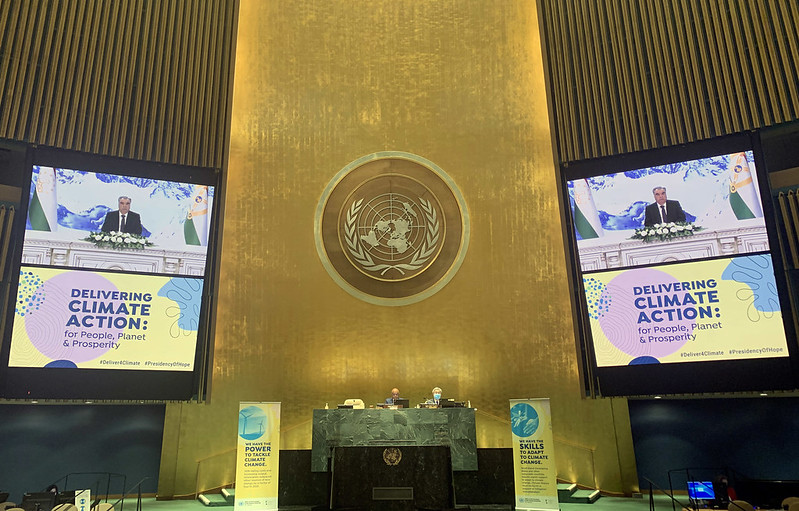
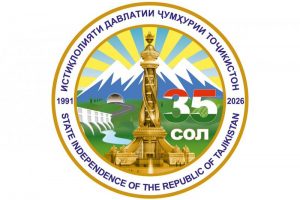 President Emomali Rahmon Approves Emblem for the 35th Anniversary of Tajikistan’s State Independence
President Emomali Rahmon Approves Emblem for the 35th Anniversary of Tajikistan’s State Independence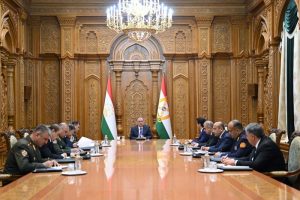 President Emomali Rahmon Holds Working Meeting with Heads of Security and Law Enforcement Agencies
President Emomali Rahmon Holds Working Meeting with Heads of Security and Law Enforcement Agencies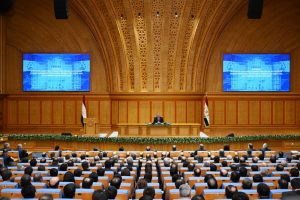 Expanded meeting of the Government of the Republic of Tajikistan
Expanded meeting of the Government of the Republic of Tajikistan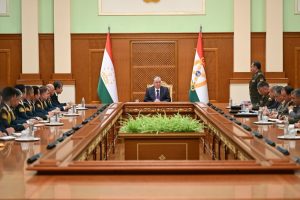 President Emomali Rahmon makes personnel appointments
President Emomali Rahmon makes personnel appointments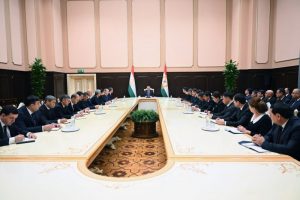 President Emomali Rahmon makes personnel changes in the structures of the Supreme Court, the Higher Economic Court, the Ministry of Foreign Affairs
President Emomali Rahmon makes personnel changes in the structures of the Supreme Court, the Higher Economic Court, the Ministry of Foreign Affairs President Emomali Rahmon makes personnel appointments in the structures of the Ministry of Internal Affairs
President Emomali Rahmon makes personnel appointments in the structures of the Ministry of Internal Affairs President Emomali Rahmon makes personnel appointments
President Emomali Rahmon makes personnel appointments Commentary to orders of the President of the Republic of Tajikistan on the republican competitions «Tajikistan – My Dear Homeland», «Science – Dawn of Enlightenment» and «Book – Dawn of Knowledge» in 2026
Commentary to orders of the President of the Republic of Tajikistan on the republican competitions «Tajikistan – My Dear Homeland», «Science – Dawn of Enlightenment» and «Book – Dawn of Knowledge» in 2026 Emomali Rahmon, Vladimir Putin discuss strengthening strategic partnership between two countries
Emomali Rahmon, Vladimir Putin discuss strengthening strategic partnership between two countries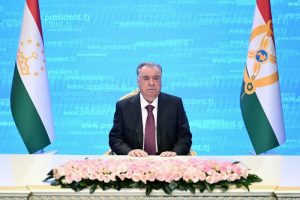 New Year Address of the President of Tajikistan to the Nation
New Year Address of the President of Tajikistan to the Nation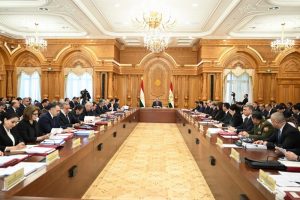 Meeting of the Government of the Republic of Tajikistan
Meeting of the Government of the Republic of Tajikistan














